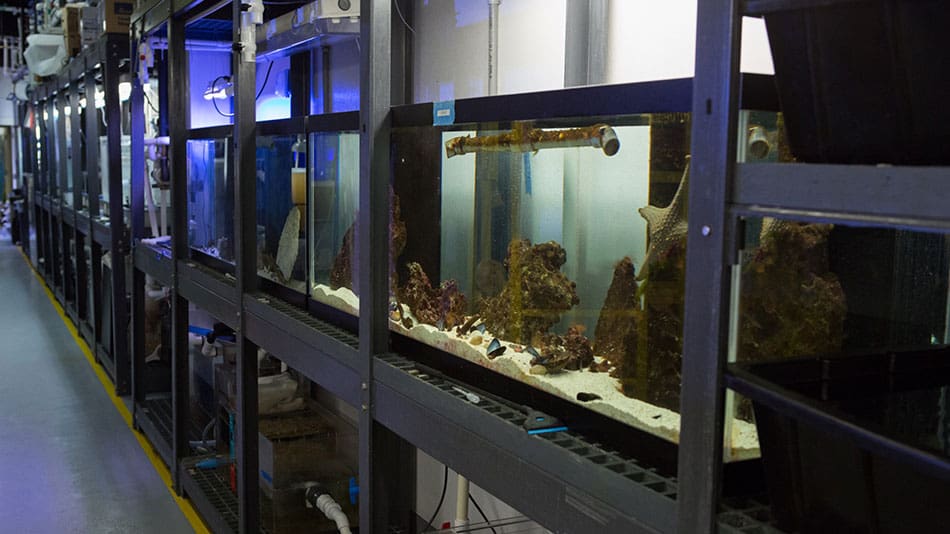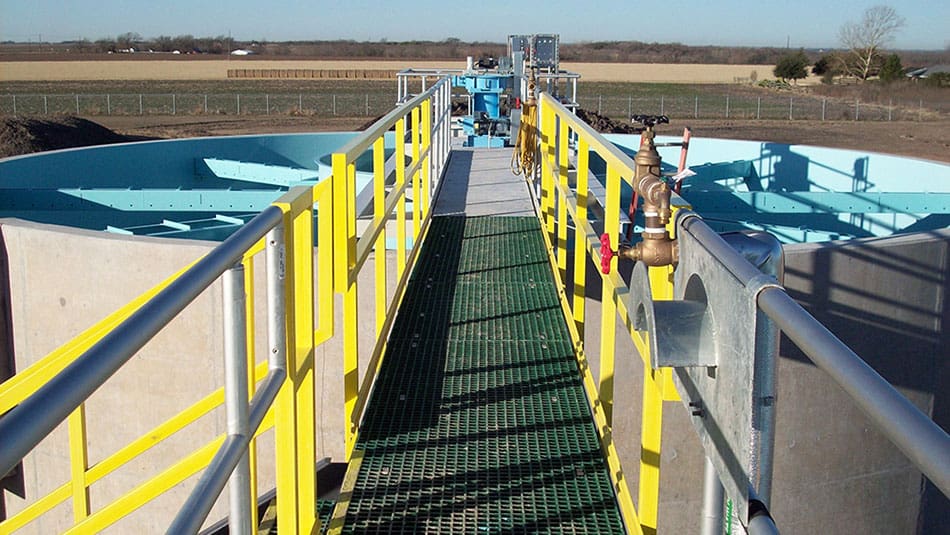Prevent Structural Corrosion with FRP
It used to be that stair towers, platforms, walkways and other structures wouldn’t last long when built in or around marine and water environments. Traditional building materials and water just don’t mix. Steel rusts and corrodes. Wood swells and warps. It didn’t take long for people to be in danger and for the structures to need replaced.
That changed for the water sector with the development of Bedford fiberglass-reinforced plastic (FRP). Bedford FRP components don’t contain any metal, so they don’t rust or corrode. They also don’t absorb water, so they don’t swell or warp. Even saltwater and wastewater doesn’t eat away at Bedford FRP like it does with other materials. Don’t spend time and money on corrosion-resistant metals (which don’t resist corrosion for long). Instead, invest in a structure that lasts even in the wettest conditions — catwalks, stairs, platforms and bridges made with Bedford FRP.
Solving Structural Corrosion Issues
Replacing structures every few years is bad for business, yet many property owners with sites in the water community think it’s the only choice. They build with steel, then as it begins to rust they invest more money trying to slow the corrosion with sanding, oil sprays and paint. But there simply aren’t affordable non-corrosive metals on the scale of structural materials, so the water wins every time. Corrosion deepens. Structures become unsound and need to be replaced.
Bedford FRP breaks the build-replace cycle through non-corrosive materials that are resistant to the damage water can cause. They deliver the strength of steel without the risk, stopping corrosion because there’s no metal to corrode.
That’s why more waterworks and other water sector professionals worldwide seeking non-corrosive metals have solved their problem by not using metal at all. The Bellagio Hotel and Casino uses Bedford FRP materials in the underwater structure of its famous fountain. An offshore oil and gas industry supplier solved its subsea applications concerns with corrosion-resistant FRP. Discovery Place Science uses Bedford FRP in its aquarium. A Gulf Coast electrical substation uses Bedford FRP to protect and maintain critical infrastructure. The list of marine applications goes on and on.

More Safety & Savings
Stopping corrosion is just one of the ways that Bedford FRP protects your people and your investment.
Water and steel are both highly conductive, so site personnel are constantly at risk for dangerous, even life-threatening, electric shocks. Unlike steel, Bedford FRP has extremely low conductivity. In fact, the conductivity is so low that a Bedford FRP structure doesn’t require grounding. That saves significant installation and maintenance costs compared to steel structures. It also greatly improves safety for personnel.
All Bedford FRP materials are manufactured to stand up to water, wastewater, harsh weather and chemicals. PROGrid® molded grating, PROGrate® pultruded grating as well as ReadyPlatform and ReadyStair components also feature slip-resistant surfaces for added safety. And, again, they won’t rust, warp or conduct electricity.

Water Construction FAQs
Here are answers to some frequently asked questions to help ensure that structures you install in and around water will perform for years to come.
What causes corrosion?
Corrosion is caused when moisture creates oxidation on a metal surface. It develops as iron oxide, or rust, and eats away at the metal to weaken it. This is particularly dangerous and costly for metal structures that support people and equipment, which is why more companies are utilizing fiberglass-reinforced materials for humid applications and those in or around water.
What is corrosion-resistant material?
There are four types of metals considered to be corrosion-resistant metals: stainless steel, brass, copper and aluminum. All are effective at preventing corrosion, but they’re more suited to light- or non-structural use because of cost and/or limited strength. Galvanized steel is somewhat corrosion resistant as it slows rust, but it won’t stop rust and will eventually weaken. The most effective choice is a high-strength non-metal material, such as Bedford fiberglass-reinforced plastic.
Why do Bedford FRP structural materials hold up well in water applications?
Bedford FRP PROSeries and ReadySeries materials are ideal for applications in and around water and high humidity because they won’t warp, rot or corrode. They also feature slip-resistant surfaces and have the strength to stand up to the harshest weather conditions.
Here to Help
Our expert team can help you find the right structural solution for your clean water, saltwater or wastewater treatment application. Reach out with questions, request a quote or call 814-623-8125 to discuss your project.